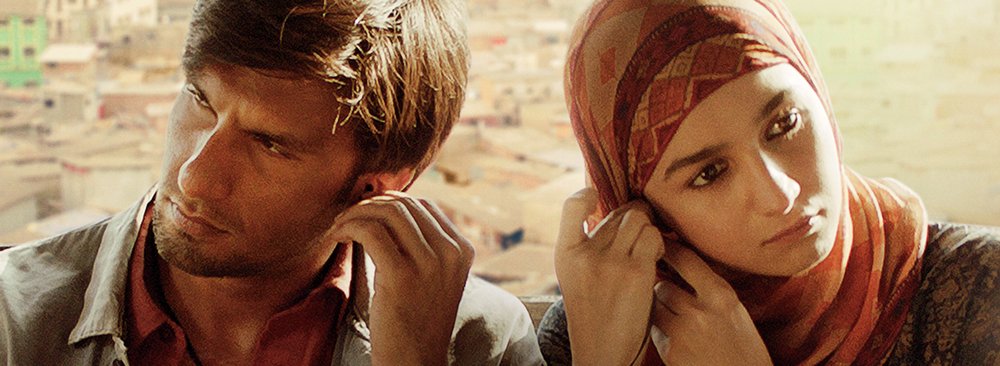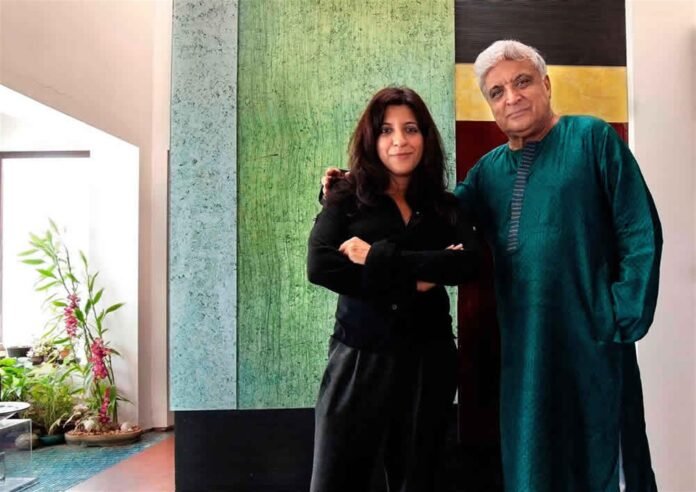Renowned poet and lyricist Javed Akhtar, a stalwart in the Indian film industry, recently revealed his initial doubts about his daughter Zoya Akhtar’s ability to create a film like “Gully Boy.” The revelation came during a candid conversation, shedding light on the dynamics of artistic perception within the Akhtar family.
In the world of Indian cinema, “Gully Boy” stands out as a groundbreaking film that brought the underground hip-hop scene in Mumbai to the forefront. Directed by Zoya Akhtar, the movie garnered critical acclaim and international recognition for its portrayal of a young rapper’s journey from the streets to stardom.

Javed Akhtar, a literary icon and respected figure in the film industry, admitted to having reservations about Zoya’s ability to navigate the gritty world depicted in “Gully Boy.” The revelation highlights the complexities within the Akhtar family, showcasing the honesty and transparency with which they navigate their creative endeavors.
During the candid conversation, Javed Akhtar praised Zoya’s determination and skill in bringing the vibrant and authentic world of Mumbai’s street rap to life. He acknowledged that initially, he had reservations about whether Zoya could authentically capture the raw essence of the underground hip-hop culture.
As a seasoned veteran in the film industry, Javed Akhtar’s doubts reflect the challenges and uncertainties that often accompany the creation of innovative and unconventional cinema. “Gully Boy” not only challenged traditional Bollywood narratives but also brought a fresh and authentic voice to the Indian film landscape.
The film, inspired by the lives of real-life street rappers Naezy and Divine, resonated with audiences for its realistic portrayal of the struggles and aspirations of the youth in Mumbai’s marginalized neighborhoods. The soundtrack, featuring powerful and socially relevant rap verses, contributed to the film’s success, solidifying its place in Indian cinema history.
Javed Akhtar and His Choices
Javed Akhtar’s admission of skepticism adds a layer of authenticity to the narrative surrounding “Gully Boy.” It showcases the process of overcoming doubts and challenges in the creative journey and emphasizes the importance of taking creative risks to push the boundaries of storytelling.
Zoya Akhtar’s ability to prove her father wrong, so to speak, by creating a film that not only met but exceeded expectations, speaks volumes about her artistic vision and storytelling prowess. The success of “Gully Boy” reflects not only Zoya’s directorial skills but also her commitment to portraying authentic narratives that resonate with diverse audiences.
The revelation of Javed Akhtar’s initial doubts also opens a window into the dynamics of the Akhtar family’s creative discussions. It humanizes the artistic process, showcasing that even established figures like Javed Akhtar grapple with uncertainties and are willing to be pleasantly surprised by the creative abilities of their family members.
Moreover, Javed Akhtar’s revelation about doubting Zoya Akhtar’s ability to create a film like “Gully Boy” adds a layer of depth to the narrative surrounding the acclaimed movie. It highlights the challenges and uncertainties that accompany the creation of innovative cinema and showcases the Akhtar family’s openness about the dynamics of their artistic journey. The success of “Gully Boy” not only shattered initial doubts but also stands as a testament to the power of authentic storytelling in Indian cinema.
The success of “Gully Boy” not only marked a triumph for Zoya Akhtar but also contributed significantly to the evolution of Indian cinema. The film’s impact extended beyond the box office, sparking conversations about representation, diversity, and the ability of Bollywood to embrace narratives outside the mainstream. By giving a voice to the marginalized youth and shedding light on the transformative power of hip-hop culture, “Gully Boy” became a cultural phenomenon that resonated globally.
Javed Akhtar’s initial skepticism and subsequent acknowledgment of Zoya’s directorial prowess also reflect the changing landscape of Bollywood. As the industry embraces diverse stories and unconventional narratives, it becomes crucial for seasoned veterans to adapt to the evolving tastes and preferences of audiences. “Gully Boy” not only challenged preconceived notions within the Akhtar family but also contributed to a broader conversation about the importance of encouraging experimentation and innovation in filmmaking.
The Akhtar family’s journey with “Gully Boy” serves as a powerful narrative in the annals of Indian cinema, embodying the spirit of creativity, collaboration, and breaking barriers. It showcases that even the most respected figures in the industry can be pleasantly surprised by the creative abilities of their kin. As Bollywood continues to witness a shift towards more inclusive storytelling, “Gully Boy” remains a pivotal moment, illustrating the impact of challenging conventions and amplifying voices that were previously unheard in mainstream cinema.

